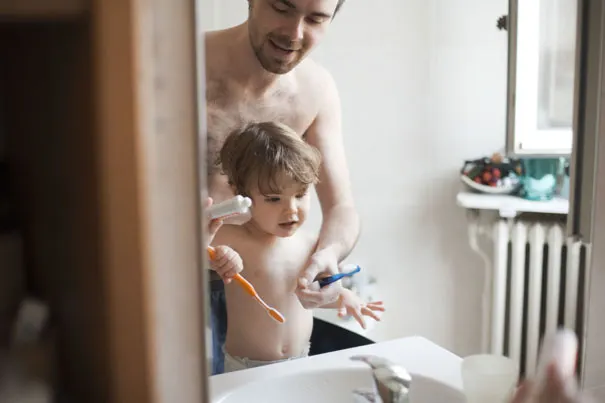Dentistry For Children and Child Dental Hygiene
Dental health is vital for general health and appearance in childhood and all through life. Preventive dentistry is so good these days that our kids can look forward to keeping those pearly whites bright and shiny all their lives. And we now know so much about keeping fear and pain out of dental care that kids should really have no reason to worry when it's time for one of those twice-a-year visits. Here are a few things you can do to be sure your child gets the right care and develops an attitude that will ensure that his smile stays bright for a lifetime.
Pick a Kid-Friendly Dentist
There are pediatric dentists who have additional training and interest in kids' dental issues. If you don't have one in your community, look for a dentist whose waiting room, staff attitude, and comfort with children tell you this will be a good experience. Your health care provider will have suggestions.
Visit Ahead of Time
Bring a child in before the time of the appointment to get acquainted with the place.
Examine Your Own Attitude About the Dentist
Many parents have some memories of bad dental experiences, and they can give unspoken negative messages about the dental chair. The parent who can be the most positive about the visit should be the one to go with the child.
Respect Those Baby Teeth
Even though your child will lose his first teeth, proper care for them, including fillings, coatings, and extraction of teeth that have died, are all part of ensuring that the teeth underneath and the jaw grow well and stay healthy. Be ready for suggestions about care that weren't options when you were a kid. Ask about fluoride rinses.
Here are a few things you can do at home between visits to keep things sparkly:
Teach kids to brush twice a day. Good times are after breakfast and before bed. Supervise at least the evening brushing for kids under 7; supervise both for kids under 4.
Use a soft-bristle brush. Hard ones scrape the gums and can foster bacteria. Change the brush every three to six months, or sooner if it wears out.
Put a timer in the bathroom. Set it for two to three minutes. That's what it takes to get things really clean.
Check on fluoride. Contact your health care provider about using fluoride supplements. The kind and amount will depend upon the fluoride content in your local water. Don't assume you don't need it if your child drinks bottled water with fluoride, as it may not be enough.
Avoid sticky foods. Some kinds of gummy candy or fruit rolls are mostly sugar and stick all day to the chewing surface of the teeth.
With good dental care at home and in the dental office — as well as the right amount of fluoride — your child should go through adulthood with a white, bright smile.
Join Pampers Club and get:




